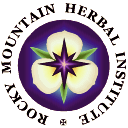RMHI HERBALIST REVIEW Issue 2000 #2
Published approximately 6 times annually by the
Rocky Mountain Herbal Institute rmhiherbal.org
To subscribe, unsubscribe, or change to a new
email address, please use the simple form at
http://www.rmhiherbal.org/contact/sub-unsub.html
E-mail this report to a friend.
Copyright 2000, RMH-Publications Trust. All rights
reserved. Please do NOT reprint or host on your Web
site without explicit permission. However, if you
found this report helpful, we grant you permission
to e-mail a copy to friends or associates.
===================================================
CONTENTS...
[1] Codex Alimentarius
[2] Proper and improper uses of ephedra
[3] Contamination in Chinese herbal patent
preparations
[4] Vaccines under fire
[5] Advanced publications for TCM herbalists
===================================================
[1] Codex Alimentarius
An increasing number of organizations are becoming
aware of the threats posed to health freedom by
Codex Alimentarius, a set of proposed international
trade regulations governing foods, nutritional
supplementation, and herbal products. The
California Society for Oriental Medicine has posted
a summary of Codex and its implications:
http://www.quickcom.net/csom/html/codex.html
While there are undoubtedly quality-control
problems in the nutritional supplement and herbal
manufacturing industries, removing consumers'
freedom of choice by international fiat is not
necessarily the solution. Public education and
private certification agencies are two forces that
can help improve quality without sacrificing
freedom of choice.
===================================================
[2] Proper and improper uses of ephedra
Ephedra, or ma huang, is a useful herb if used as
indicated, but can be dangerous if used to excess
or for conditions for which it may only mask
symptoms. Many of the currently popular uses of
ephedra would be considered inappropriate from the
perspective of the TCM pharmacopoiea. The TCM
pharmacopoiea states that it
- Releases the Exterior and disperses Cold;
indicated for TaiYang-stage Exterior Chill; acts by
inducing sweating.
- Circulates Lung Qi; relieves cough and asthma.
- Promotes urination and relieves edema
accompanying External Evil.
Ephedra is to be avoided or used cautiously in
Deficiency conditions characterized by excessive
sweating; it may aggravate high blood pressure and
cause restlessness and tremors.
One of the primary active ingredients of ephedra
is ephedrine, which is a bronchodilator and is
especially effective when bronchospasm is present.
It is also diaphoretic, vasoconstrictive, and
raises blood pressure.
To use ephedra for weight loss or as a stimulant,
two popular uses, risks exhausting the Qi, resulting
in adrenal exhaustion and chronic fatigue. Its
classification as a "tonic" by certain sources is
misleading, as its long-term side effects are just
the opposite, resulting in exhaustion. As for
weight loss, ephedra can temporarily increase
metabolic rate and diuresis, which can enhance
short-term weight loss, but if underlying metabolic
factors are not corrected, long-term consumption
of ephedra will lead to not only exhaustion, but a
rebound of weight gain.
Furthermore, many Americans are already suffer some
type of exhaustion (of Qi, Yin, Yang, or Blood) due
to stress, overwork, and poor diet, and any use of
ephedra, especially without counteraction by other
herbs, may risk aggravating the condition.
===================================================
[3] Contamination in Chinese herbal patent
preparations
Prepared herbal products (including pills and
powders) manufactured in mainland China frequently
contain contaminants, including heavy metals and
illegal pharmaceutical drugs. For a list of
products known to contain such contaminants, see
http://www.quickcom.net/csom/html/western_drugs.html
However, be aware that this may only be a partial
list.
RMHI has long advised its students and graduates to
use whole dried herbs whose botanical identity be
verified by inspection and smell.
Eventually, we feel that a shift toward local,
organically grown herbs is highly desirable.
However, to employ such herbs to their greatest
potential will require a detailed understanding of
local herbs in the context of TCM (Chinese)
herbology. Such understanding can best be
achieved by people who have been trained in the
TCM system of health care and who know how to
conduct proper clinical research.
The secret to the effectiveness of Chinese herbal
health care is not its herbs, many of which are
commonly available worldwide, but its underlying
philosophy and methodology. The latter can be
successfully applied to understanding diet,
environmental health issues, and chemical exposure.
It may be tempting for companies to enhance the
short-term potency of an herbal product with
pharmaceutical adulterants, because this may
increase a product's apparent potency in the hands
of naive and uninformed users. However, we feel
that such tactics will ultimately backfire, and
will only cloud the credibility of a 2000-year-old
system of health care that has much to offer the
world.
===================================================
[4] Vaccines under fire
Michele Carbone, a research pathologist at the
National Cancer Institute, has verified the presence
of SV40, a potent tumor-inducing virus, in polio
vaccines administered during the period 1955-1963.
http://www.theatlantic.com/issues/2000/02/002bookchin.htm
According to an article appearing in Lancet (Alm,
J.S. et al, LANCET 1999, 353:1485-88), children who
follow anthroposophical teachings of Rudolph
Steiner, including avoidance or minimization of
childhood vaccinations, suffered from allergies
significantly less than their fully vaccinated
peers; the incidence of allergies were directly
proportional to the number of vaccinations received
during childhood.
The alleged merits of vaccination have come into
increasing controversy over the past decades, as
more evidence accumulates of harmful effects and
questionable effectiveness in preventing infectious
illness. For a synopsis of this evidence, see
http://www.unc.edu/~aphillip/www/vaccine/informed.htm
===================================================
[5] Advanced publications for TCM herbalists
During the past 20 years, C.S. Cheung, M.D., who
teaches advanced courses at the Rocky Mountain
Herbal Institute, has translated a small mountain
of clinical reports and articles from Chinese TCM
hospitals. These publications include clinical case
studies reported in detail: case histories, health
assessments, herbal formulas used, outcomes, and
discussion of results. For an updated listing of
publications organized by topic, see
http://www.rmhiherbal.org/hscc/
For those of you who already have some of Dr.
Cheung's reports, the preceding listing of
publications has been expanded and reorganized, and
now includes exact cover titles, copyright dates,
number of pages, and brief description of contents.
This should make ordering publications easier.
==================================================

|


